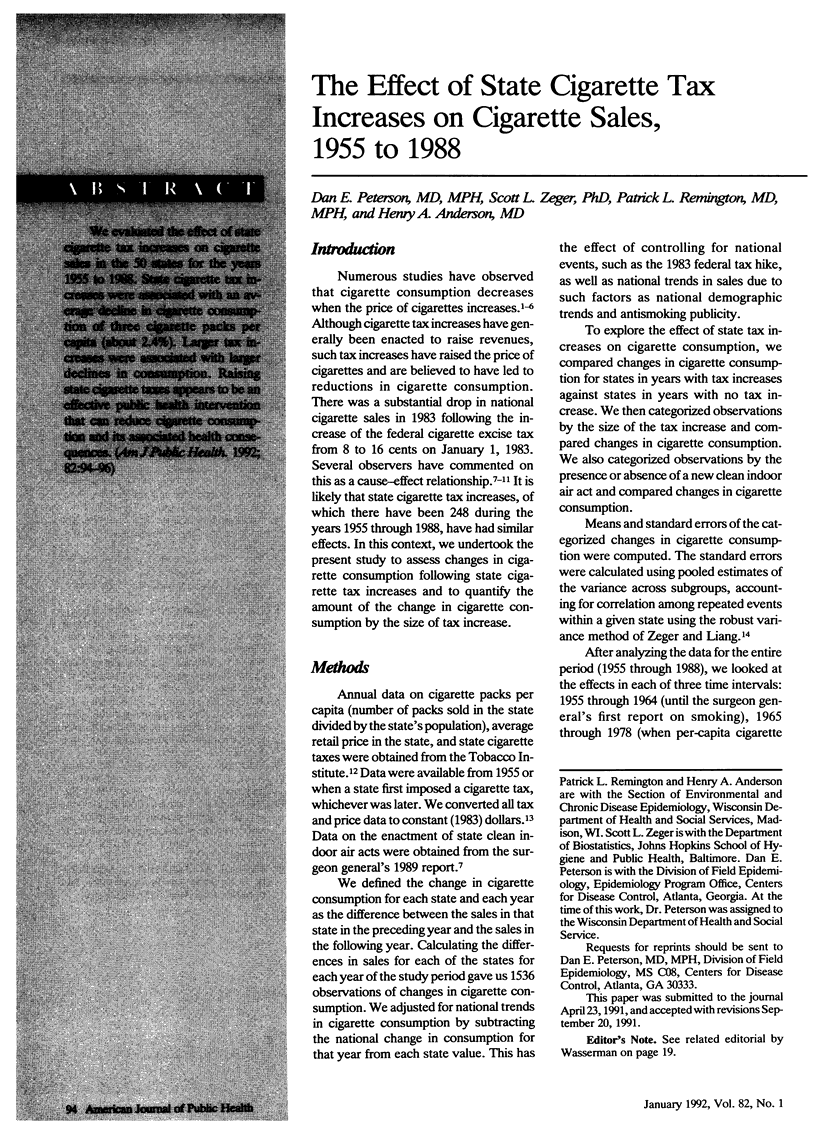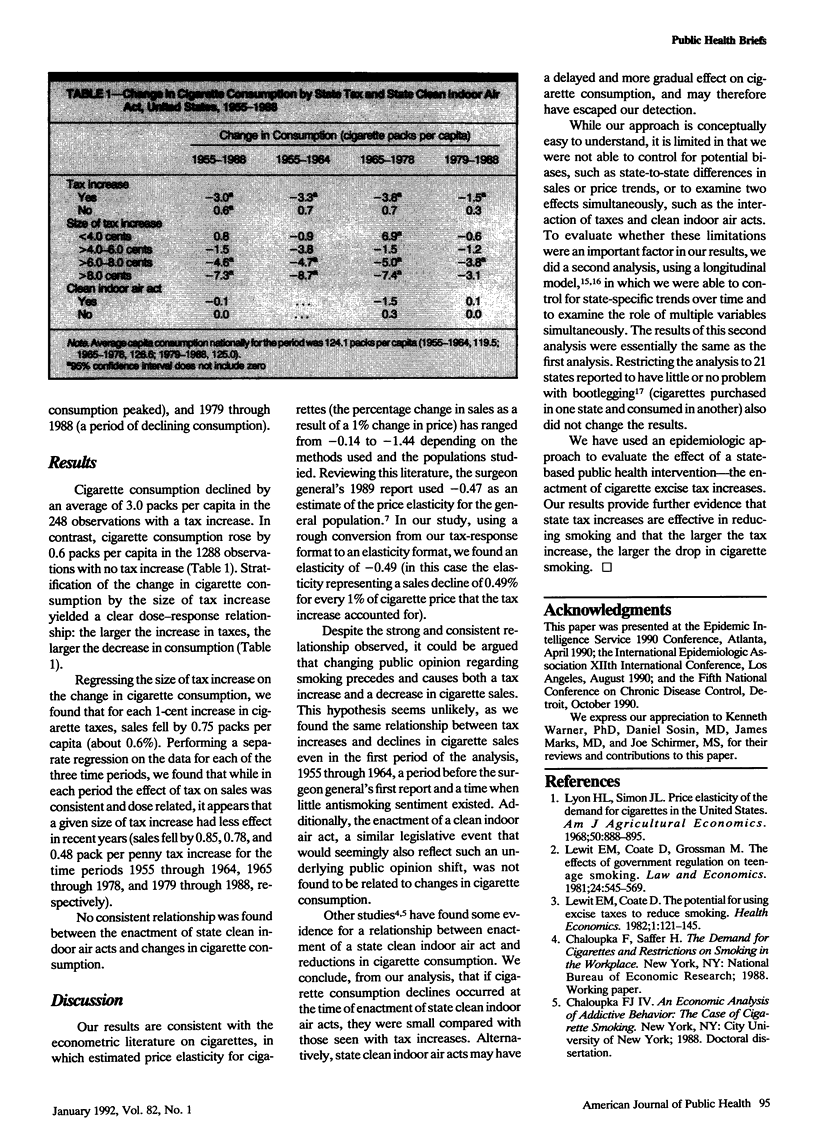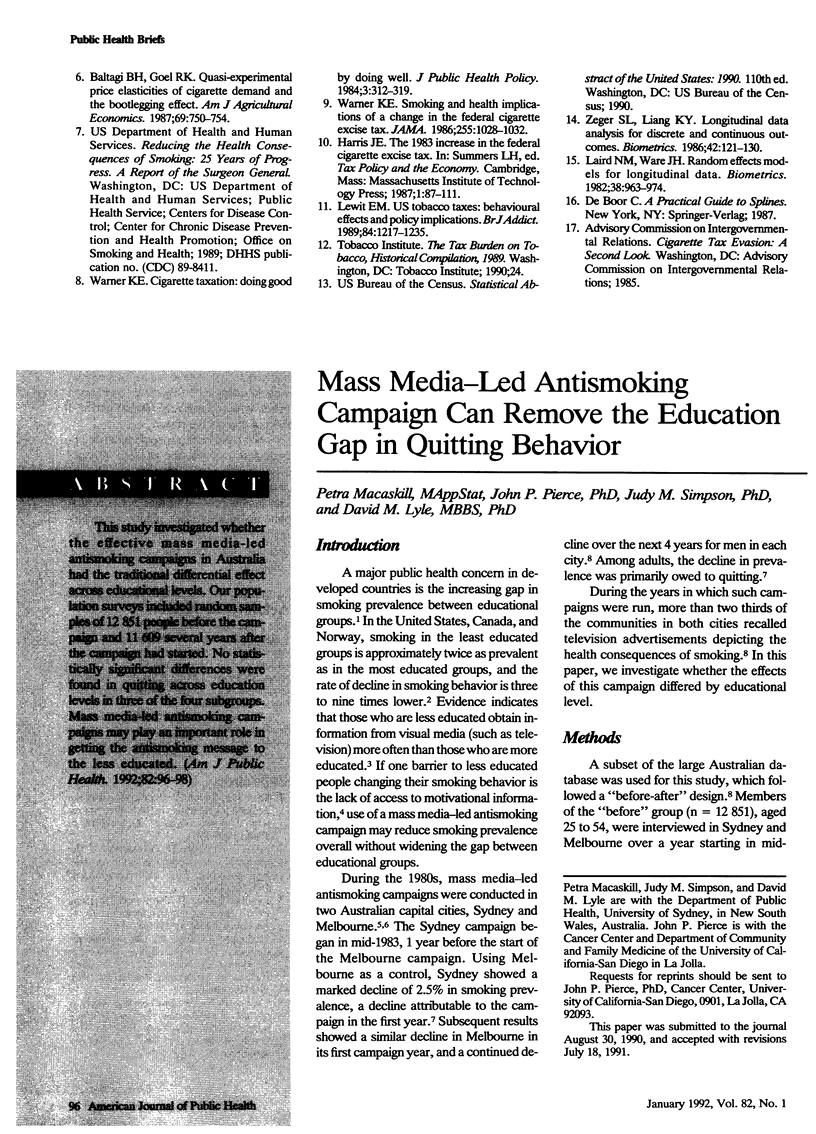Abstract
We evaluated the effect of state cigarette tax increases on cigarette sales in the 50 states for the years 1955 to 1988. State cigarette tax increases were associated with an average decline in cigarette consumption of three cigarette packs per capita (about 2.4%). Larger tax increases were associated with larger declines in consumption. Raising state cigarette taxes appears to be an effective public health intervention that can reduce cigarette consumption and its associated health consequences.
Full text
PDF


Selected References
These references are in PubMed. This may not be the complete list of references from this article.
- Laird N. M., Ware J. H. Random-effects models for longitudinal data. Biometrics. 1982 Dec;38(4):963–974. [PubMed] [Google Scholar]
- Lewit E. M. U.S. tobacco taxes: behavioural effects and policy implications. Br J Addict. 1989 Oct;84(10):1217–1234. doi: 10.1111/j.1360-0443.1989.tb00717.x. [DOI] [PubMed] [Google Scholar]
- Lewitt E. M., Coate D. The potential for using excise taxes to reduce smoking. J Health Econ. 1982 Aug;1(2):121–145. doi: 10.1016/0167-6296(82)90011-x. [DOI] [PubMed] [Google Scholar]
- Warner K. E. Cigarette taxation: doing good by doing well. J Public Health Policy. 1984 Sep;5(3):312–319. [PubMed] [Google Scholar]
- Warner K. E. Smoking and health implications of a change in the federal cigarette excise tax. JAMA. 1986 Feb 28;255(8):1028–1032. [PubMed] [Google Scholar]
- Zeger S. L., Liang K. Y. Longitudinal data analysis for discrete and continuous outcomes. Biometrics. 1986 Mar;42(1):121–130. [PubMed] [Google Scholar]


